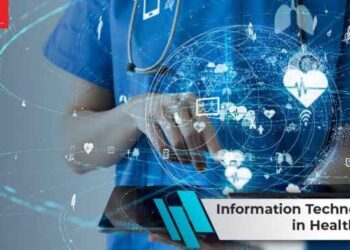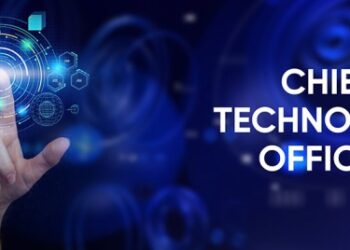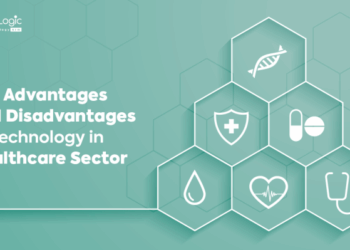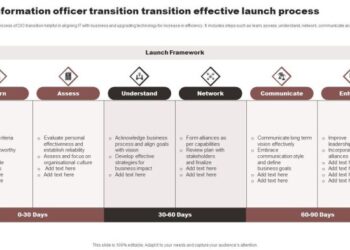Delving into the realm of Computer Information Systems and Health IT unveils a fascinating landscape where technology and healthcare converge. The synergy between these two fields opens up a world of possibilities and innovations that can revolutionize the way we approach healthcare.
As we embark on this exploration, we will uncover the integral role that Computer Information Systems play in shaping the future of healthcare delivery and management.
Introduction to Computer Information Systems and Health IT
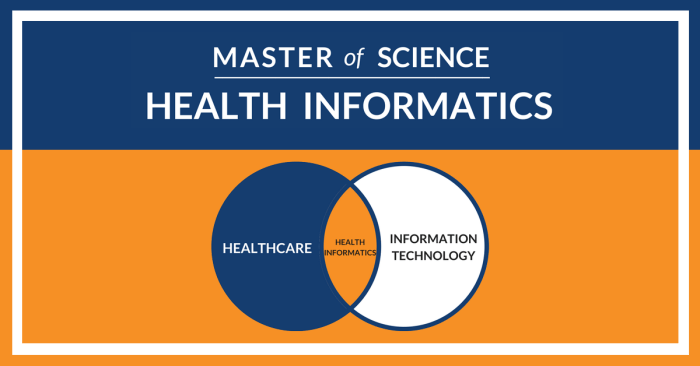
Computer Information Systems (CIS) encompass the study of how technology can be utilized to manage and analyze data within organizations. On the other hand, Health Information Technology (Health IT) focuses on the use of technology to manage healthcare data and information.
The integration of these two fields is crucial in modern healthcare systems to streamline processes, improve patient care, and enhance overall efficiency.
Importance of Integrating CIS and Health IT
- Efficient Data Management: By integrating CIS and Health IT, healthcare providers can effectively store, retrieve, and analyze patient data, leading to better decision-making and improved patient outcomes.
- Enhanced Communication: Seamless integration of these systems allows for smooth communication between healthcare professionals, leading to better coordination of care and reduced medical errors.
- Improved Patient Care: The use of technology in healthcare systems can lead to personalized treatment plans, remote monitoring of patients, and timely access to medical information, ultimately improving the quality of patient care.
Role of Computer Information Systems in Healthcare
- Electronic Health Records (EHR): CIS plays a vital role in the development and maintenance of EHR systems, which enable healthcare providers to access patient information securely, leading to better care coordination and decision-making.
- Data Analysis: CIS helps in analyzing vast amounts of healthcare data to identify trends, patterns, and insights that can be used to improve healthcare delivery, optimize resources, and enhance patient outcomes.
- Cybersecurity: With the increasing digitalization of healthcare systems, CIS ensures data security and privacy measures are in place to protect sensitive patient information from cyber threats.
Applications of Computer Information Systems in Health IT
Computer Information Systems play a crucial role in the field of Health IT, revolutionizing the way healthcare data is managed and utilized. From Electronic Health Records to telemedicine and healthcare analytics, these systems have significantly impacted the industry.
Electronic Health Records (EHR)
Electronic Health Records, commonly known as EHR, are digital versions of patients' paper charts. Computer Information Systems are used to create, store, and manage these records efficiently. EHR systems allow healthcare providers to access patient information securely, leading to improved coordination of care and better patient outcomes.
Telemedicine
Telemedicine has transformed healthcare delivery by allowing patients to consult with healthcare providers remotely. Computer Information Systems enable secure video conferencing, messaging, and data sharing between patients and providers. This technology has increased access to healthcare services, especially in remote areas, and has become increasingly popular, especially in light of the COVID-19 pandemic.
Healthcare Analytics
Computer Information Systems are instrumental in collecting, analyzing, and interpreting vast amounts of healthcare data for decision-making purposes. Through advanced analytics tools, healthcare organizations can identify trends, patterns, and insights that help in improving patient care, operational efficiency, and cost-effectiveness.
Utilizing data-driven insights has become a cornerstone of modern healthcare management.
Challenges and Solutions in Integrating Computer Information Systems with Health IT
Integrating Computer Information Systems with Health IT comes with its own set of challenges that need to be addressed in order to ensure a seamless and effective integration process. These challenges often revolve around compatibility issues, data security concerns, and interoperability problems.
However, there are solutions available to overcome these obstacles and enhance the integration process while prioritizing data security and privacy
Common Challenges Faced in Integrating Computer Information Systems with Health IT
- Compatibility Issues: Different systems may have varying formats, structures, or protocols which can make it difficult to transfer and interpret data accurately.
- Data Security Concerns: The sensitive nature of health information requires robust security measures to protect against unauthorized access, breaches, and cyber threats.
- Interoperability Problems: Lack of standardization and communication between systems can hinder the seamless exchange of data, leading to inefficiencies and errors.
Solutions to Enhance the Integration Process
- Implementing Health Information Exchange (HIE) platforms to facilitate secure data sharing between different healthcare organizations and systems.
- Utilizing Application Programming Interfaces (APIs) to enable seamless communication and data exchange between disparate systems.
- Adopting Health Level Seven International (HL7) standards for data interoperability to ensure consistency and compatibility across various systems.
Importance of Data Security and Privacy
Data security and privacy are paramount in Computer Information Systems for Health IT to safeguard sensitive patient information and maintain trust in the healthcare system. Robust security measures, such as encryption, access controls, and regular security audits, help prevent data breaches and protect patient confidentiality.
By prioritizing data security and privacy, healthcare organizations can ensure compliance with regulations like HIPAA and build a secure foundation for effective information exchange and patient care.
Future Trends in Computer Information Systems and Health IT
The future of healthcare technology is heavily influenced by advancements in Computer Information Systems. These innovations are shaping the landscape of Health IT and transforming the way healthcare is delivered. Let's explore some key trends that are expected to drive the future of Computer Information Systems and Health IT.
Artificial Intelligence and Machine Learning in Health IT
Artificial Intelligence (AI) and Machine Learning (ML) have the potential to revolutionize healthcare by enabling faster and more accurate diagnosis, personalized treatment plans, and predictive analytics. AI algorithms can analyze vast amounts of medical data to identify patterns and trends that can help healthcare providers make more informed decisions.
Machine Learning models can also be used to predict patient outcomes and recommend the most effective interventions. The integration of AI and ML in Health IT will lead to improved patient outcomes, reduced healthcare costs, and enhanced overall efficiency in the healthcare industry.
Internet of Things (IoT) in Healthcare
The Internet of Things (IoT) is another game-changing technology that is expected to revolutionize healthcare through Computer Information Systems. IoT devices, such as wearable sensors, remote monitoring devices, and smart medical equipment, can collect real-time data on patients' health status and transmit it to healthcare providers.
This continuous stream of data allows for proactive and remote monitoring of patients, early detection of health issues, and personalized treatment plans. By leveraging IoT technologies, healthcare organizations can improve patient care, optimize resource allocation, and enhance operational efficiency.
Final Summary
In conclusion, the connection between Computer Information Systems and Health IT is not just a mere intersection of disciplines but a catalyst for transformative change in the healthcare sector. By harnessing the power of technology, we pave the way for a future where efficiency, precision, and patient-centric care reign supreme.
FAQ
How do Computer Information Systems impact Electronic Health Records (EHR)?
Computer Information Systems streamline the storage, retrieval, and sharing of patient data in EHR systems, enhancing accuracy and efficiency in healthcare settings.
What are some common challenges faced in integrating Computer Information Systems with Health IT?
One common challenge is interoperability issues between different systems, which can hinder seamless data exchange and communication.
How can Artificial Intelligence and Machine Learning contribute to Health IT?
AI and ML technologies can analyze complex medical data, predict outcomes, and personalize treatment plans, improving patient care and operational efficiency.


